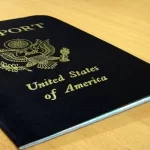Are you dreaming of exploring the vibrant streets of Istanbul or immersing yourself in the rich history and culture of Turkey? Well, before you pack your bags and book your flights, there’s one important detail you don’t want to overlook – obtaining a transit visa for Turkey. Whether you’re planning a layover adventure or embarking on a Turkish getaway, this comprehensive guide will take you through the ins and outs of securing that all-important transit visa. So fasten your seatbelts, fellow travelers – it’s time to navigate through the maze of requirements, procedures, and insider tips that will ensure smooth sailing on your journey to Turkey! Transit Visa for Turkey
Introduction to Transit Visas and their Purpose
A transit visa is a type of temporary visa that allows travelers to pass through a country for a limited period while on their way to another destination. It is different from a regular tourist or business visa, which typically allows travelers to stay in the country for longer periods of time.
The purpose of a transit visa is primarily to facilitate smooth travel for individuals who need to pass through a country in order to reach their final destination. This could include layovers or connecting flights that require passengers to leave the airport and re-enter it at a later time.
In the case of Turkey, obtaining a transit visa may be necessary for certain travelers depending on their nationality and the duration of their layover. This means that even if you do not plan on leaving the airport during your stopover in Turkey, you may still be required to obtain a transit visa.
Types of Transit Visas
There are two types of transit visas available for travelers passing through Turkey – the Airport Transit Visa (ATV) and the Transit Visa (TV). The ATV is valid for stays up to 72 hours, while the TV can be issued for stays between 3-7 days. Enter Turkey with Schenegen Visa
The ATV is typically used by travelers who are simply transiting through one Turkish airport en route to another international destination. On the other hand, the TV is suitable for those with longer layovers or who wish to leave the airport and explore Turkey during their stopover.
Understanding the Turkish Transit Visa Requirement:
If you are planning to travel to a different country through Turkey, it is important to be aware of the transit visa requirement. A transit visa is a temporary short-term visa that allows travelers to pass through a country while en route to their final destination.
Do I Need a Transit Visa for Turkey?
The answer depends on your nationality and the length of your layover in Turkey. Citizens of certain countries do not need a transit visa if they meet certain criteria, such as having a valid Schengen or US visa. However, citizens of many other countries will require a transit visa regardless of their length of stay in Turkey.
To check whether you need a transit visa for Turkey, you can refer to the official website of the Republic of Turkey Ministry of Foreign Affairs or contact your nearest Turkish embassy or consulate.
Types of Transit Visas:
There are two types of transit visas that may apply to your situation: airport transit visa (ATV) and short-stay transit visa (C-visa). The type you need will depend on your nationality and whether you plan to leave the airport during your layover.
1. Airport Transit Visa (ATV):
An ATV allows travelers with connecting flights at Turkish airports to remain within the international terminal without entering Turkish territory. This means that passengers with an ATV cannot leave the airport during their layover.
Documents Required for a Turkish Transit Visa Application
When applying for a transit visa for Turkey, there are certain documents that you will need to prepare and submit as part of your application. These documents are essential in proving your eligibility for a transit visa and ensuring a smooth and successful application process. In this section, we will discuss the key documents required for a Turkish transit visa application.
1. Valid Passport: The most important document required for any international travel is a valid passport. For a Turkish transit visa application, your passport must be valid for at least 6 months beyond your intended stay in Turkey. It should also have at least two blank pages for entry and exit stamps.
2. Completed Visa Application Form: You will need to fill out an online visa application form through the Turkish government’s official website or through their designated visa application center in your country of residence. Make sure to fill out all the required fields accurately and completely.
3. Photographs: Two recent passport-sized photographs with a white background are required for your transit visa application. The photos should not be older than six months and must meet the standard requirements set by the Turkish government.
4. Flight Reservation: A confirmed flight reservation is necessary to show proof of your travel plans while transiting through Turkey. This can be obtained from an airline or travel agent but it is not recommended to purchase actual tickets until your visa has been approved.
How to Apply for a Transit Visa
If you are planning to travel through Turkey on your way to another destination, you may need to apply for a transit visa. This type of visa allows you to pass through the country and stay for a limited period of time without having to obtain a regular tourist or business visa. In this section, we will guide you through the process of applying for a transit visa for Turkey.
1. Determine if you need a transit visa
The first step is to determine if you actually need a transit visa for Turkey. Citizens of some countries are exempt from requiring a transit visa while others may not be eligible at all. You can check the list of countries and their specific requirements on the website of the Turkish Embassy or Consulate in your home country.
2. Gather required documents
Once you have confirmed that you do need a transit visa, it’s time to gather all the necessary documents for your application. These typically include:
– A valid passport with at least 6 months remaining before expiration
– Completed and signed visa application form
– Two recent passport-sized photos
– Proof of onward travel (such as airline tickets)
– Valid visas or residence permits for your final destination (if applicable)
3. Fill out the online application form
To apply for a Turkish transit visa, you will need to fill out an online application form available on the official website of the Turkish Ministry of Foreign Affairs. You will be required to provide personal information including your name, date and place of birth, contact details, and
Tips for a Smooth Transit Visa Application Process
Obtaining a transit visa for Turkey may seem like a daunting process, but with the right information and preparation, it can be a smooth and hassle-free experience. Here are some tips to help you navigate the transit visa application process:
1. Start early:
It is recommended to start your transit visa application process at least 2-3 months before your intended travel date. This will allow enough time for any unexpected delays or complications that may arise.
2. Know the requirements:
Before starting your application, make sure you are aware of all the necessary documents and requirements needed for a transit visa in Turkey. These typically include a valid passport, proof of onward travel, accommodation bookings, and sufficient funds to cover your stay.
3. Check for entry restrictions:
Make sure to check if there are any entry restrictions for your nationality in Turkey before applying for a transit visa. Some nationalities may require additional documents or have different processing times.
4. Apply online:
The Turkish government has made it possible to apply for a transit visa online through their e-visa system, which makes the process faster and more convenient. Be sure to use only official government websites when submitting your application.
5. Fill out the form accurately:
When filling out the application form, be sure to double-check all information entered as even minor errors can result in delays or rejection of your application.


